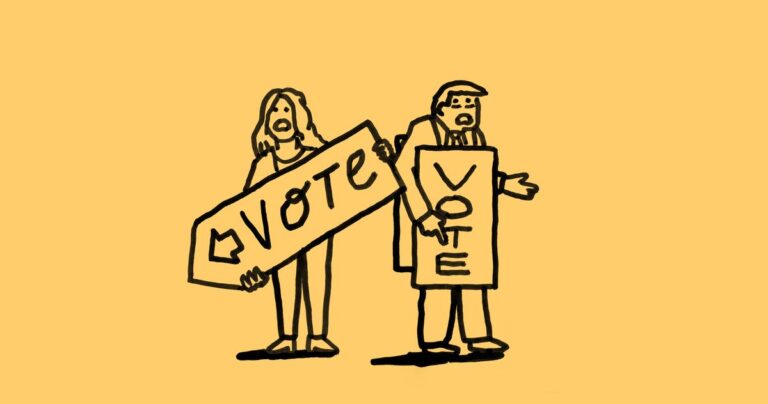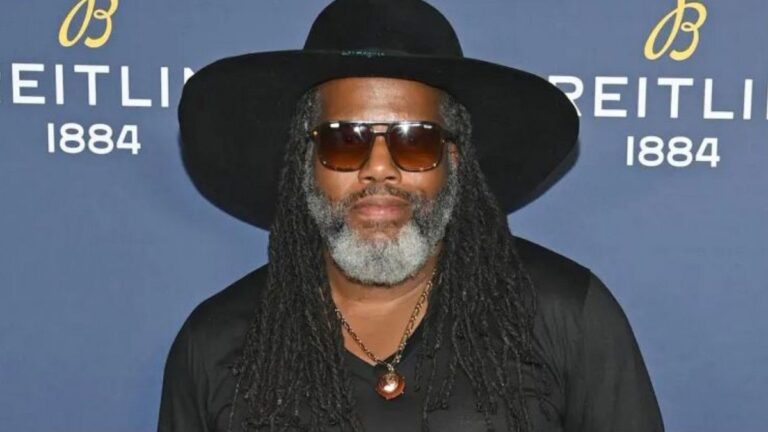Scarborough Links Harris’s Loss to Racism and Misogyny Issues
Scarborough Links Harris’s Loss to Racism and Misogyny
Kamala Harris’s recent loss in the political arena has sent ripples through the media and public discourse, but the reactions from commentators have been particularly telling. Joe Scarborough, a prominent political commentator, has made headlines by attributing Harris’s defeat not just to standard electoral issues but to deeper societal problems—specifically, racism and misogyny among voters. This analysis raises essential questions about voter behavior and the underlying currents of race and gender in American politics. So, what’s the deal here? Let’s dive deeper and untangle this complex topic.
The Political Landscape: A Brief Overview
First off, let’s take a step back and look at the broader political landscape. In today’s America, where polarization runs rampant, every election cycle seems to reveal more profound rifts in society. Kamala Harris’s role as vice president and her bid for a higher office put her at the forefront of this battle, amplifying both her visibility and vulnerability. Her position as the first woman of South Asian and African American descent in such high office meant that her candidacy was bound to be scrutinized through various lenses. Political landscapes are fickle, changing more swiftly than the weather. So, how have societal attitudes shaped her journey?
The Intersection of Race and Gender
One of the cruxes of Scarborough’s argument is that Harris faced unique challenges because of her race and gender. Historically, women, especially women of color, have been underrepresented in political spaces. According to various studies, voters can often subconsciously allow biases to influence their decisions, a phenomenon that unfortunately affects women like Harris immensely.
Imagine being in a room where everyone else’s eyes are focused on you, dissecting your every move. For Harris, that’s what campaigning felt like. She didn’t just face political opposition; she confronted a barrage of societal biases too.
Racism and Voter Dynamic
In his comments, Scarborough highlighted that some Black and Hispanic voters might be swayed by long-standing stereotypes and biases. This isn’t just a knee-jerk reaction; it’s backed by research showing that minority candidates often face greater scrutiny and skepticism based on race alone.
- Skepticism: There’s a tendency among some voters to question the legitimacy of minority candidates’ qualifications.
- Representation: Voters from the Black and Hispanic communities may feel conflicted about whether to support a candidate who might not fully represent their lived experiences, albeit being part of a seemingly marginalized group.
This shift in voter perception can often lead candidates like Harris to feel like they have one foot in the door while being actively pushed out—what a frustrating predicament!
Misogyny and the Female Candidate Experience
Now, let’s not forget the gender aspect. Scarborough pointed out how misogyny, especially in politics, takes on a life of its own. Remember the last time a male candidate was scrutinized for his tone or wardrobe? Exactly. Harris faced challenges that her male counterparts didn’t—whether it was the way she spoke, her demeanor in debates, or her choices in attire. These invisible barriers are built from generations of societal norms that dictate how women “should” behave, which often doesn’t align with the aggressive nature of political campaigns.
- Double Standards: For women, showing confidence can be labeled as “aggressive,” while the same behavior in men is often perceived as “leadership.”
- Media Scrutiny: Women in politics are often subject to more media scrutiny regarding their physical appearance and personal lives than their male counterparts.
In the political arena, it can feel like walking across a minefield where one wrong move could lead to devastating consequences.
The Voter Base and Its Impact
When we zone in on Harris’s base—primarily composed of diverse communities—it’s important to consider how fluctuating voter loyalties might have played a role. As Scarborough argued, the perception of Harris might not align uniformly across all demographics. Many Black and Hispanic voters have diverse priorities that may not have aligned with Harris’s campaign objectives, resulting in a critical disconnect.
Trust and Connection
Ultimately, people vote based on whom they trust and identify with. For years, some candidates, especially those from traditional backgrounds, have utilized connections and cultural touchpoints to build trust and rapport within their communities. Could it be that Harris’s mixed heritage placed her in a unique but challenging position? Yes, she represents a significant cultural evolution, but it also means she may have had to work harder to establish herself as a relatable figure.
Take a moment to think about it—how much easier is it to back someone who embodies your voice and experiences? Harris’s mixed heritage could have inadvertently created a split in voter sentiment—a dilemma if there ever was one.
The Role of Media Narratives
We can’t ignore the media’s role in shaping public perceptions, particularly regarding underrepresented candidates. A well-timed story can make or break a campaign. The media’s portrayal of Kamala Harris often oscillated between praise and criticism, and these narratives invariably colored how voters viewed her.
In his comments, Scarborough hinted at this media landscape, suggesting that it perpetuated biases against women and minority figures. Here are some factors to chew on:
- Framing: The way the story is framed can either humanize or vilify a candidate.
- Highlights and Lowlights: Media outlets might often amplify missteps or gaffes while glossing over noteworthy successes.
The Power of Perception
It’s fascinating to consider just how much perception influences politics. Think about it—how many times have you heard someone say, “I can’t vote for him/her because they seem untrustworthy”? Perception can be formed through mere snippets of news coverage, tweets, or sound bites. Harris, like others, faced the immense challenge of navigating this treacherous territory where a single misstep could have larger implications.
Conclusion
Joe Scarborough’s assertion linking Kamala Harris’s electoral loss to racism and misogyny unveils critical truths about the current political climate in the U.S. While it’s easy to chalk political losses up to usual suspects—poor funding, bad strategy, or insufficient voter outreach—issues rooted in racial and gender biases add layers that can’t be ignored.
As we reflect on Harris’s journey, it’s essential to recognize the importance of representation and the intricate dynamics that mold electoral politics. We need to keep asking ourselves: How can we create a more inclusive environment for all candidates, regardless of race or gender? As society continues to evolve, so too must our political systems—and this includes addressing the biases that still linger in the hearts and minds of voters. Just like any good story, political narratives are intricate, frustrating, and sometimes downright messy, but they are a crucial part of the fabric of democracy.
FAQs
1. What specific factors contributed to Kamala Harris’s loss?
Kamala Harris’s loss can be linked to various factors, including racial and gender biases, a disconnect with certain voter demographics, and media narratives that may have framed her campaign unfavorably.
2. How do racism and misogyny play a role in voter behavior?
Racism and misogyny can affect how voters perceive candidates, often leading to skepticism and double standards that may undermine a candidate’s support.
3. What can be done to combat biases against minority candidates?
Promoting education about systemic biases, fostering inclusive political environments, and ensuring diverse representation in media can help combat these issues.
4. How important is media portrayal in political campaigns?
Media portrayal is critical as it shapes public perception, affects candidate relatability, and can influence voter trust and support.
5. Can the experiences of Kamala Harris change future political dynamics?
Yes, Harris’s experiences can shed light on the ongoing challenges minority and female candidates face, offering lessons for future campaigns aimed at overcoming these biases.







